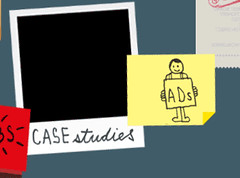Planners vs Creatives
 Great post from Northern Planner. Apologies for reproducing in full but I thought it was worth it.
Great post from Northern Planner. Apologies for reproducing in full but I thought it was worth it. 1. Don't forget, planners are not essential. Creatives and account people did fine before planners came along. Planners need to persuade people to want them there. For creatives, being useful means two things: i) Getting their work through research and clients ii) Useful stuff, inspiration and guidance.
2. Getting work through research means using groups (if you have to) to find how to improve the work, not kill it. Getting work through clients means working closely with suits and constantly contributing stuff they won't have considered themselves. It also means being good at suggesting instead of telling.
3. To be able to be useful in the creative process, two things matter. Firstly, how you behave and secondly, the quality of the stuff you give them.
4. When it comes to you, it all comes down to being interesting and helpful. You need to be the person they want in the room. This means working with them instead of dictating, it also means people believing that you're a font of all knowledge. So collect things, articles, pictures, films thoughts,whatever is interesting. If people think you have lots of useful stuff, they'll come to you for it. But be generous, don't try and take credit for their ideas or they'll never come to you again.
5. The creative briefing is important, but all the stuff that goes on before the first review are even more so. Keep on informally dropping in for a chat, giving them stuff they may find useful. Do this before the breifing too. If you want to be part of the creative process, it's only right that they should be part of the strategy.
5. Be quick and do the work. If they ask for something, get it quick while the idea is fresh in their minds. They'll appreciate that you've helped.
6. Creatives tend to prefer analogy and visual stimulus NOT LOTS OF WORDS. Give them loads of stuff - it's the density and relevance of the stimulus that counts more then the quality, they'll know how best to utilise it.
7. It's hard to go to suits for some objective thoughts on where the work is going - they've always got the client hat on. Planners have the opportunity to act as a non-threatening sounding board. There's no need to criticise work either. If you talk about the good work, they'll get the message about the other stuff. Ditto about disussing the good points about individual executions.
8. One of the hardest things to get accross in a briefing is a tone of voice. But just like body language, it's at least as important as what you'ren actually saying. Work hard at showing them the tone instead of telling - pictures, video, real people, anything.
9. There is some disgreement about this, but I've found that creative starters wind them up, while fresh useful insights help.
10. It's not knew, but never forget that creatives remember the briefing, never the brief. Make your brief a pleasure to read as a matter of course, or consider something that is far more than words. Get a bit of theatre into the briefing, get them inspired. They'll have lots of briefs on, how can you make them want to do their best work on yours?
11. (bonus just added). Never underestimate how much they want feedback. If the work has bombed in groups, tell the truth. If the client hates it, tell the truth. You always get found out and you'll have lost them forever.
Tags: planning
